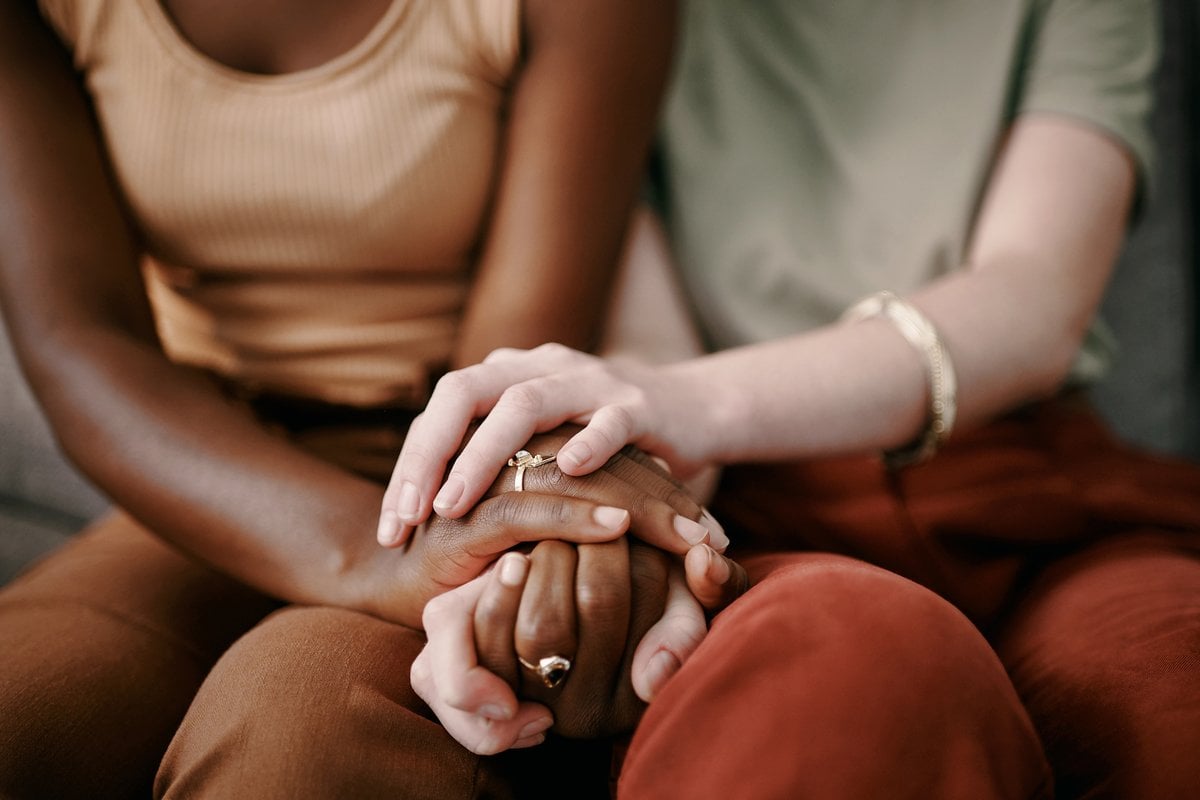
This article was originally published on Laurel Pantin's Substack, Your Mom. You can sign up to her newsletter here.
When I'm out with my kids, at least once, I think: I wonder if everyone thinks I'm their nanny, because I definitely do not seem old enough to be their mum.
The subtext of that is: I don't feel old enough to have this much responsibility and I wonder if it shows.
But at 37... girl... you're old enough. It's that thing where you realise your parents, whom you thought had the answers to everything, were also fumbling around in the dark just as blindly as you are. That nobody knows for sure what to do, and we're all just trying our best.
Watch: Things you shouldn't say to people who are having an anxiety attack. Post continues below.
And being 37, being a friend, being a mum, being a person, whatever - there have been more instances than anyone would like recently when my friend or family member is confronted with a nightmare in the process of making, having, birthing, or rearing a baby.
In those moments I think I'm too young to be involved in anything this serious. But then again, 37, and also, let's not make this about me, shall we?

Top Comments